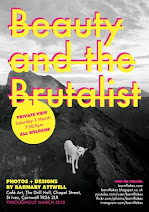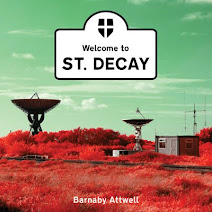
Window of the bookshop that Bobby Fischer visited daily
We were driving in the dark (this time of year there's only four hours of light a day) through a town called Selfoss some 60km south of Reykjavik, Iceland. My companion Hinrik pointed out a light beside a mountain just outside the town. He said Bobby Fischer was buried there. Then he said, offhandedly, 'I knew him, you know.' I looked at him. 'Yes, really, I knew him.'
Hinrik was a young man when he first met chess grandmaster Robert James Fischer in Reykjavik in 1972. The American Fischer was there for the now-legendary world chess championship against the Russian Boris Spassky that was seen as more than mere chess: it was a Cold War battle, the USA Vs. the USSR. When Bobby won, it was a victory for the west, for democracy, for freedom and the American way. It made Fischer world chess champion, and an instant celebrity. Yet his chess career essentially ended in 1972; Fischer withdrew from public life and chess-playing and would not play a competitive game for almost 20 years.
At the time (1972), Hinrik was trying to sell silk-screen printed T-shirts. He approached an American smoking a cigar (for permission to sell them) who somehow – I didn't quite grasp how or why – introduced him to Bobby Fischer, who was in the next room. They spoke for five minutes.
Over the years Hinrik would occasionally bump into Fischer at Reykjavik airport, and they became friends. When Fischer moved to Iceland in 2005, Hinrik would often see him shuffling along the street on his own, and would offer him a lift in his car. Once, knowing of another American in exile, Hinrik introduced Fischer to him and the two spoke non-stop for nine hours. But Fischer was lonely in Iceland, a lost, shuffling and shambling figure.
After violating a United Nations trade embargo by playing chess in Yugoslavia in 1992 (he beat Spassky in an unofficial rematch), and owing the Revenue Service income tax, Fischer never returned home to the United States. He drifted and lived variously in Japan, the Philippines, Germany and Hungary. Iceland, a liberal country of chess fanatics, granted him a passport in 2005. It seems somehow appropriate that he ended up there, the place that made him a world champion in 1972.
Hinrik told me about a secondhand bookshop Fischer used to go to every day and chat with the owner. I found the bookshop the following day, Bokin ehf, on Klappastigur 25-27. It was like a cliche of a secondhand bookshop; piles of precariously balanced books everywhere and the owner almost buried under them. He looked like he hadn't moved for years. I asked him if this was the bookshop Bobby Fischer had come to. 'Yes,' he said, abruptly. I asked him if he'd known Fischer. 'No,' he said, abruptly. Then he fixed me with a stare. 'I'm not interested in…[rest of sentence inaudible]'. But I got the message. My Fischer trail had ended.
• Fischer died in 2008. His remains are to be exhumed to settle a bitter dispute over his £1 million estate.
• I've put some of my photos from Iceland on Flickr.
Previously on Barnflakes:
• Chessed Out
• The Tournament
• Top 10 Chess Openings













No comments :
Post a Comment